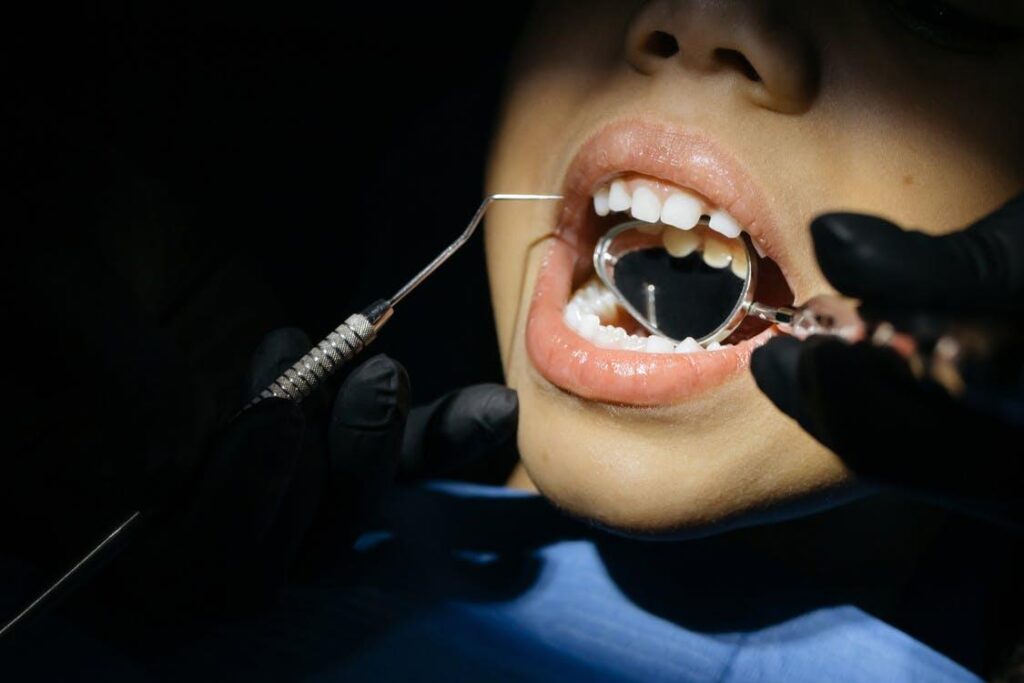As parents, we’re always worried about the health of our kids. And when it comes to their teeth, the biggest concern is whether they have dental cavities. Although cavities are very common in children, they can be prevented with a little extra attention and effort. Let’s learn what causes cavities in children and how you can help prevent tooth decay in your family.

Why do kids get cavities?
A child’s teeth are still developing, so they are more likely to develop cavities. Cavities form when bacteria that live in our mouth eat the sugar that we eat and produce acid, which can wear away our teeth. Although we can’t prevent all decay, there are ways we can reduce the risk of it happening to your child:
- Brush their teeth twice a day with fluoride toothpaste and clean between their teeth once a day; if you have any doubts about whether they’re brushing enough or well enough, ask your dentist for advice.
- Have regular dental check-ups so you know how much plaque (bacteria) is on their teeth – this is especially important if they?re under 6 years old as babies and toddlers aren?t able to clean their own teeth effectively yet!
- Ensure they drink plenty of water because dehydration can contribute to oral disease by creating an environment where harmful bacteria thrive.
Should we be concerned?
You may have heard that dental cavities in kids and adults are a common problem. In fact, you may be reading this because one of your children has a cavity, or you’re concerned about the possibility of developing one as an adult.
Dental cavities are not only painful, but they can be expensive to fix if left untreated. They can also cause other problems like toothaches and gum disease that affect the overall health of the mouth and body.
But good dental hygiene can prevent most cases of tooth decay by removing plaque?a sticky film made up of bacteria that forms on teeth?and exposing food particles to saliva so they wash away before they get stuck between teeth or under fillings or crowns (caps).
Avoiding tooth decay in children
To avoid tooth decay in children, you can:
- Avoid sugary drinks and snacks.
- Brush your teeth twice a day, for at least two minutes each time. Do not skip this step! In the morning when you get up, and before bedtime at night are the ideal times to brush your teeth. You should also floss daily to remove bacteria from between the teeth where a toothbrush can’t reach.
- Don’t let your children fall asleep with a bottle of milk or juice (or anything else) because it will cause their mouth to be open for long periods of time while they sleep?which means more exposure to sugar!
- An examination by a dentist is mandatory. You can easily book dentist appointment online and let him check the condition of your child’s teeth.
How to spot a cavity?
Look for pain, sensitivity, or swelling. If your child complains of any of these symptoms after biting into an ice cream cone or sucking on a piece of candy, they may have a dental cavity.
Check the teeth for discolouration, or chipping. Biting into hard foods could cause the enamel to chip off and expose sensitive dentin beneath it – this is an early indicator that something is wrong with your kid’s pearly whites!
Look for small holes or pits on the surface of the tooth. In some cases, this can be a sign that there’s decay deeper within their mouth (cavities). You’ll want to watch out for these in particular because they’re more likely than others to develop into something more serious over time?so if you notice them now then treat them!
Check for yellow or brown spots around your kid’s mouth – this will help show whether proper oral hygiene practices have been maintained throughout childhood thus far; if not then maybe now would be a good time to start brushing after every meal instead? Additionally, check inside cheek areas where food particles tend to build up easily due to lackadaisical brushing habits–this would also be a good way to see how often flossing happens before deciding whether make changes here too.
It’s all about prevention, prevention, prevention!
Dental cavities in kids are caused by the build-up of plaque, a sticky film that forms on teeth. The main culprits? Sugar and sugary foods. So to prevent dental cavities, you’ll have to eliminate those from your diet too.
We hope this article has given you some insight into the causes of tooth decay in children and what you can do to prevent it. If you are concerned about your child’s teeth, please contact your local dentist or pediatrician as soon as possible. We recommend an annual appointment for every child to keep their oral health in top condition.









